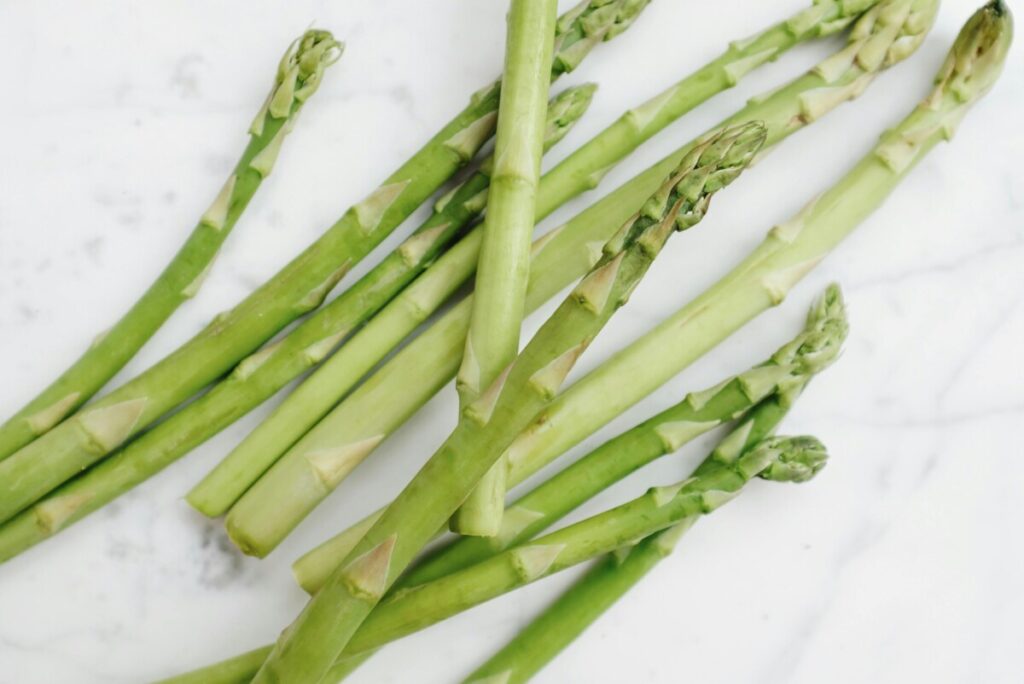“The Health Benefits of Asparagus”

Asparagus stands as a beacon of nutrition and versatility in the culinary world, celebrated for its crisp texture and distinct flavor. This slender green vegetable, a favorite in a myriad of cuisines globally, is not just a side dish but a powerhouse of health benefits. From aiding weight loss to improving digestive health and bolstering heart function, asparagus is a treasure trove of vitamins, minerals, and antioxidants. This article delves into the multifaceted health benefits of asparagus, its nutritional profile, and practical tips for cooking, growing, and enjoying this remarkable vegetable throughout its season.
Key Takeaways
Asparagus is a nutrient-dense vegetable offering a wide range of health benefits, including weight management, improved digestion, and enhanced heart health.
It is rich in essential vitamins, minerals, and antioxidants, making it a valuable addition to a healthy diet.
Asparagus can be prepared in various ways, from simple roasting to inclusion in sophisticated dishes, catering to diverse dietary preferences.
Growing asparagus at home is feasible, with proper care and maintenance ensuring a bountiful harvest.
The peak season for fresh asparagus offers the best flavor and nutritional value, with tips available for selecting, storing, and preserving asparagus to enjoy year-round.
Healthfulness of Asparagus
Asparagus is not just versatile in cooking. It is a nutritional powerhouse with many health benefits. Asparagus is rich in fiber, and vitamins A, C, E, K, and B6. It also contains folate, iron, copper, calcium, protein, and antioxidants. Asparagus supports weight loss, prevents urinary tract infections, and boosts mood. High antioxidants like flavonoids and polyphenols combat oxidative stress. They may reduce the risk of chronic diseases like heart disease and cancer. Asparagus promotes digestive health and aids pregnancy with high folate. Its role in a balanced diet is crucial.
Nutritional Value of Asparagus
Asparagus is lauded for its low-calorie yet nutrient-rich profile. Cooked asparagus has about 20 calories in a half-cup serving. It has a balanced mix of carbs, protein, and minimal fat. It has a high vitamin K content, crucial for blood clotting and bone health. Furthermore, it is also a significant source of folate, essential for cell growth and DNA formation. Asparagus provides a unique mix of fiber types. This promotes digestive and cardiovascular health.
Cooking with Asparagus
Cook asparagus through grilling, roasting, steaming, or sautéing. Avoid overcooking asparagus to maximize health benefits and flavor. Lightly cooking it preserves nutritional content and vibrant color. Adding asparagus to salads, soups, stir-fries, and omelets boosts nutrition. Start with basic recipes like roasted asparagus. This can lead to more complex dishes for beginners in cooking.
Growing Asparagus at Home
Gardeners can enjoy freshly grown asparagus. Asparagus grows best in well-drained soil and sunlight. It needs time to establish, usually taking a few years. Regular watering, mulching, and weeding will ensure healthy growth. Addressing issues like asparagus beetles and fusarium wilt early can prevent crop loss. This makes growing homegrown asparagus rewarding.
Asparagus Recipes
The versatility of asparagus shines through in the myriad of recipes available, catering to various dietary preferences. From vegan asparagus soup to gluten-free roasted asparagus, there’s a recipe for everyone. Experimenting with different cooking methods and seasonings can elevate the humble asparagus into a gourmet dish, with recipes available for beginners and seasoned cooks alike.
Asparagus Season
The peak season for asparagus, typically from March to June, offers the freshest and most flavorful spears. 79 Selecting asparagus with firm stalks and tightly closed tips ensures the best quality. Storing asparagus properly, by trimming the ends and placing them in water, can extend its freshness. For year-round enjoyment, freezing or preserving asparagus during its season allows for a taste of spring even in the colder months.
https://holisticwellnesswave.com/index.php/2024/01/18/healthy-food-trends-for-2024/
Conclusion
Asparagus is a testament to the beauty and bounty of nature, offering not just culinary delight but a host of health benefits. Its nutritional profile, coupled with its versatility in cooking and potential for home gardening, makes asparagus a valuable addition to any diet. By embracing asparagus in our meals, we can enjoy its flavors and reap its health rewards throughout the year.
FAQs
Q: How does asparagus promote health?
A: Asparagus promotes health through its high content of vitamins, minerals, antioxidants, and fiber, supporting weight loss, heart health, and digestion.
Q: Can asparagus be included in a weight loss diet?
A: Yes, asparagus is low in calories and high in fiber, making it an excellent choice for weight loss diets.
Q: What are some simple ways to cook asparagus?
A: Simple ways to cook asparagus include roasting, grilling, steaming, and sautéing, with minimal seasoning to enhance its natural flavor.
Q: When is the best time to plant asparagus?
A: The best time to plant asparagus is in early spring, once the soil is workable, to allow the plants to establish before the growing season.
Q: How should fresh asparagus be stored?
A: Fresh asparagus should be stored by trimming the ends and placing the stalks in a container with water, similar to flowers, and refrigerating them.



